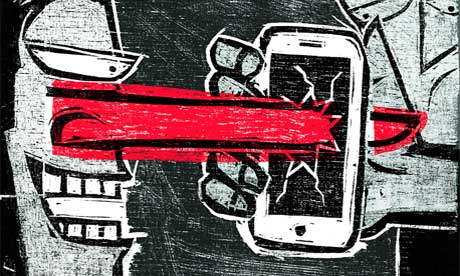
This is the truth that so nearly wasn't told. Remember that on Wednesday, when the independent inquiry on the Hillsborough football stadium disaster finally unleashes a flood of confidential papers, and with them perhaps the justice for which survivors and victims alike have waited too long.
We have known how 96 men, women and children met their horrible deaths ever since the Taylor report was published in 1990. But what we haven't really known is exactly what happened next: how unforgivable lies about the Liverpool fans' behaviour came to be spread (and recycled by the Sun), and whether there was a systematic cover-up involving police and politicians, as the victims' families believe.
And we might so easily never have known. It has taken 23 years for a Conservative prime minister to express "regret" for the Thatcher government's handling of the tragedy. Without Andy Burnham, a football-mad working class lad from Liverpool, in cabinet this new inquiry probably wouldn't have been a priority for Labour's chaotic last months in power. The line between truth and lies, between full picture and misleading snapshot, is terrifyingly thin. We so nearly didn't know.
Our world is undoubtedly more open and transparent now than it was in 1989: if, God forbid, anything like Hillsborough were to happen again, the truth would surely be harder to conceal. With a mobile phone in every pocket there can never again be just one official account, a monopoly on reliable information in the crucial early hours of a manmade disaster: never again would it be eyewitnesses' word against the police.
Nick Hardwick, then chair of the Independent Police Complaints Commission, said after the G20 protests that the proliferation of mobiles in crowds had transformed the job of investigating alleged brutality: officers now knew "there is going to be this evidence", not just that they were being watched. (And he was speaking before pictures of the death of Ian Tomlinson surfaced.) Were anything like this to happen now, there would be a million grainy pictures, a million urgent tweeted testimonies, a haunting archive from beyond the grave: think of the 9/11 victims calling loved ones from the hijacked planes, knowing they were never coming home. We would hear their voices.
It's surely harder now too (although scarcely impossible), to sustain a government cover-up of any major debacle. A breakneck news cycle, driven by 24/7 rolling news and Twitter, gives officialdom less time to concoct stories: we expect ministerial responses to breaking news within minutes, not days.
Then there is the whole armoury of freedom of information requests, empowered select committees, expert bloggers not beholden to proprietors, and the replacement of journalistic deference with Jeremy Paxman-style showdowns. Public inquiries too have been transformed by sensitive political conversations migrating to text and email which, unlike old-fashioned conversation, leave an electronic trace.
In a thousand tiny ways, it's now easier than ever to expose a lie: yet we've never felt less confident of getting the truth. Polls show 62% of us now think politicians "lie all the time and you can't believe a word they say". And paradoxically, all that corrosive suspicion makes us arguably more, rather than less, vulnerable to deception. The trouble with the belief that politicians always lie is that eventually, the cost of lying will inevitably diminish. If dishonesty is assumed, it's no longer quite so shocking to be caught proving what everyone thinks anyway. And so the political advantage of telling malicious falsehoods about one's opponent (or one's own record) increases: after all, what's the downside?
Something like this now appears to be happening in the US, where the press is grappling with so-called post-truth politics, or the tendency among candidates in election year not just to twist the facts but to keep blatantly doing so even when they're caught.
But the most damaging consequence of the conviction that all politicians lie is that it breeds contempt, a kneejerk refusal to listen. Voters tune out, absorbing really big new themes that seem to fit their own prejudices but skipping the boring bits where misleading data is unpicked or the argument challenged. The more we switch off in disgust, the more freedom we arguably give politicians to do the things that disgust us.
After 15 years of writing about Westminster, I've certainly been lied to, and not just by politicians. People in any walk of life will sometimes say anything to get out of trouble. Too often for comfort, I've seen wild-eyed conspiracy theorists vindicated over everything from phone-hacking to extraordinary rendition of terror suspects. And too often for comfort, I've seen people like the Hillsborough families frustrated and failed at every turn while officialdom scrabbles to cover its back.
Yet while it's unpopular to say so, most people in public life still probably tell the truth more often than not. We are in danger of forgetting that not everything officialdom says is a lie, and that more often than not there are grains of truth on both sides of an emotive story. Sometimes a denial, having been exhaustively tested, must then be accepted – and to say so isn't naivety or whitewash, but merely respect for the truth. Why demand the facts, if you're not willing to listen?

